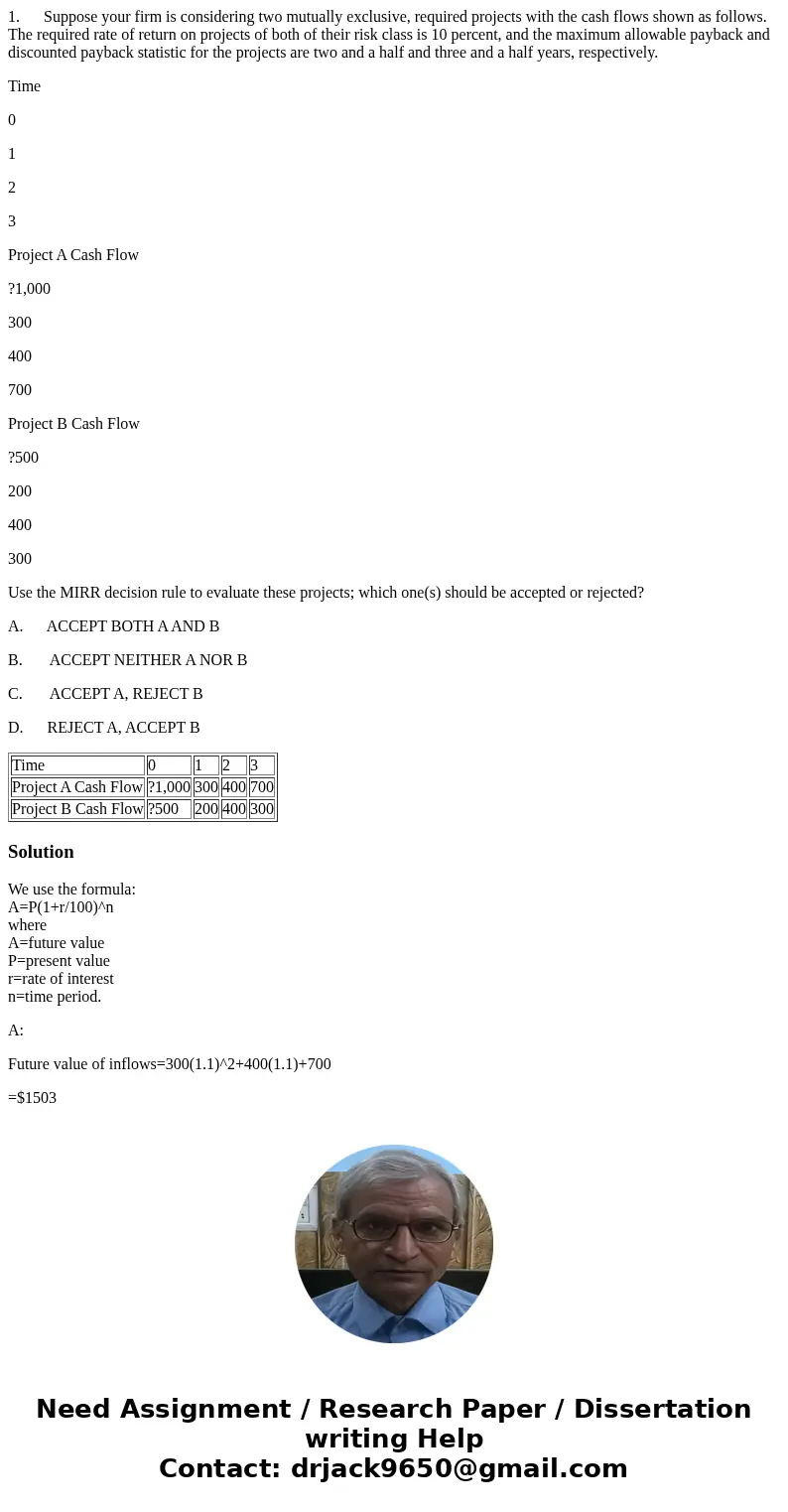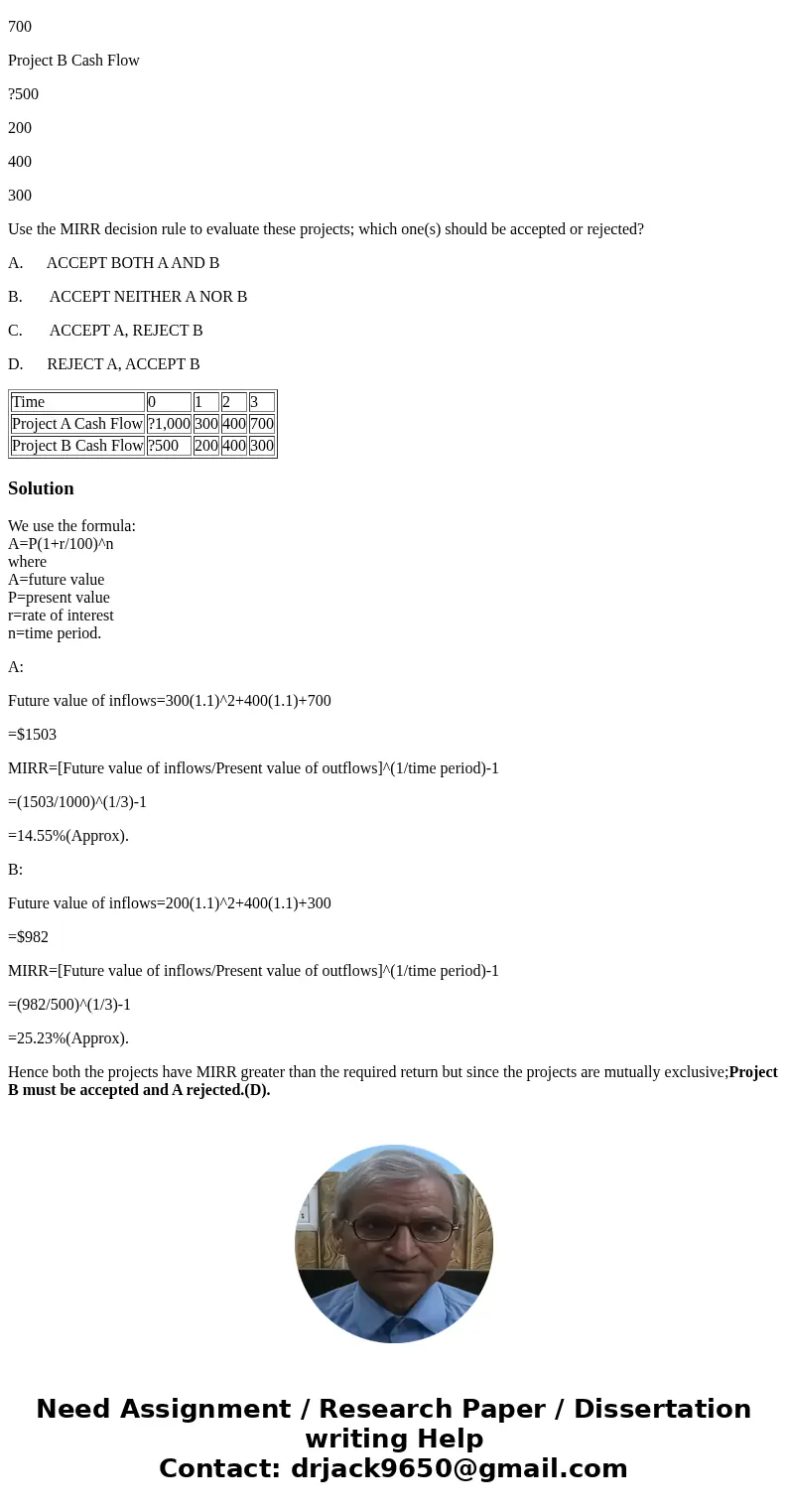1 Suppose your firm is considering two mutually exclusive re
1. Suppose your firm is considering two mutually exclusive, required projects with the cash flows shown as follows. The required rate of return on projects of both of their risk class is 10 percent, and the maximum allowable payback and discounted payback statistic for the projects are two and a half and three and a half years, respectively.
Time
0
1
2
3
Project A Cash Flow
?1,000
300
400
700
Project B Cash Flow
?500
200
400
300
Use the MIRR decision rule to evaluate these projects; which one(s) should be accepted or rejected?
A. ACCEPT BOTH A AND B
B. ACCEPT NEITHER A NOR B
C. ACCEPT A, REJECT B
D. REJECT A, ACCEPT B
| Time | 0 | 1 | 2 | 3 |
| Project A Cash Flow | ?1,000 | 300 | 400 | 700 |
| Project B Cash Flow | ?500 | 200 | 400 | 300 |
Solution
We use the formula:
A=P(1+r/100)^n
where
A=future value
P=present value
r=rate of interest
n=time period.
A:
Future value of inflows=300(1.1)^2+400(1.1)+700
=$1503
MIRR=[Future value of inflows/Present value of outflows]^(1/time period)-1
=(1503/1000)^(1/3)-1
=14.55%(Approx).
B:
Future value of inflows=200(1.1)^2+400(1.1)+300
=$982
MIRR=[Future value of inflows/Present value of outflows]^(1/time period)-1
=(982/500)^(1/3)-1
=25.23%(Approx).
Hence both the projects have MIRR greater than the required return but since the projects are mutually exclusive;Project B must be accepted and A rejected.(D).


 Homework Sourse
Homework Sourse